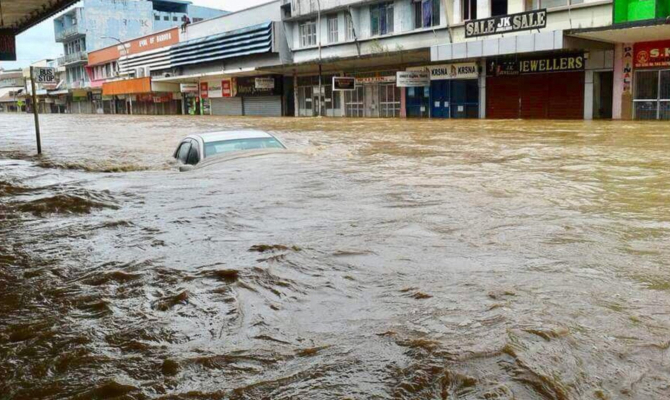The Pacific islands have applauded the announcement from the Government of Australia, pledging its support for a long-term solution to weather-related extreme events posed by climate change in the Pacific through the Weather Ready Pacific Decadal Programme of Investment.
Weather Ready Pacific is a visionary, ground-breaking ten-year programme of investment that will strengthen the region’s ability to anticipate, plan for, and respond to high-impact and extreme weather, water, and ocean events.
This is an initiative that was discussed and unanimously supported by members of the Pacific Meteorological Council at their 5th meeting in 2019 and actively engaged in developing. It was endorsed by the Pacific Island Forum (PIF) Leaders Meeting in 2021.
During the recent PIF Special Leaders’ Retreat in Fiji, Australia’s Minister for Foreign Affairs, Senator Penny Wong, announced that Australia will be contributing a total of AUD$30 million (US$20 million) to kickstart the initiative.
“Australia is proud to support the Weather Ready Pacific initiative, to help the region to better forecast and disseminate severe weather warnings,” Senator Wong said.
“This is a Pacific-led initiative, that will assist communities to better prepare and save lives.”
“We look forward to delivering Weather Ready Pacific in partnership with the Pacific Meteorological Council.”
PIF Leaders welcomed this announcement at the Special Leaders Retreat in February 2023, outlining that “the region continues to bear the human and economic cost of severe weather… This will enhance the region’s early warning systems and increase resilience to climate change”.
The commitment from Australia to support Weather Ready Pacific is a much-welcomed announcement, with the design for the ten-year programme of investment led by the Pacific Meteorological Council.
Five of our Pacific islands are listed in the top 15 countries in the world with the highest disaster risk – with three holding the top three placings. The Pacific islands region is exceptionally vulnerable to severe weather, and hydrological and ocean events. Over the years, the region has seen countless cyclones, earthquakes, tsunamis, volcanic eruptions and other extreme weather events. These events increase in intensity and severity year after year.
Economic losses from cyclones and flooding in the South Pacific region in 2020 were around USD$1 billion, with at least 71 lives lost. Annual average losses are around USD$500 million.
The Secretariat of the Pacific Regional Environment Programme (SPREP) Director General, Sefanaia Nawadra, expressed his gratitude on behalf of the Pacific Meteorological Council and the Pacific region for Australia’s generous contribution.
“This contribution from Australia will go a long way in ensuring that our region, which is extremely vulnerable to natural disasters, is better prepared and protected against these events. It will help realise the vision for a Weather Ready Pacific and will be integrated and contribute to the implementation of our 2050 Blue Pacific Strategy,” Nawadra said.
SPREP’s Meteorology Adviser, Salesa Nihmei, highlighted the importance of the Weather Ready Pacific programme and how it can help the Pacific be more resilient in the face of extreme weather events, which are becoming increasingly severe due to the change in the climate. The active 2022/2023 tropical cyclone season with category 4 Judy and Kevin affecting the islands of Vanuatu three days apart is a prime example.
“Through the Weather Ready Pacific programme, our Pacific island countries will be better equipped to protect their communities by ensuring that forecasts and warnings are more specific and clear about local conditions and potential impacts,” he said.
“It will also support our Pacific economies, which face losses amounting to USD 500 million each year, by ensuring that forecasts and warnings are timely and give people enough time to prepare, thereby limiting the impacts of these severe weather events,” Nihmei added.
Weather Ready Pacific will aim to strengthen overall security in the region in line with the Boe Declaration, which recognises an expanded concept of security, including human and environmental security. It will also support UN Secretary-General, Antonio Guterres’ call for “Early Warning Systems for All” by 2027.
SOURCE: SPREP/PACNEWS














